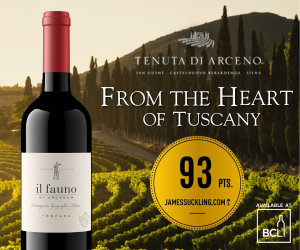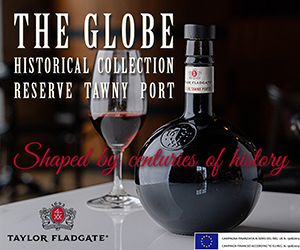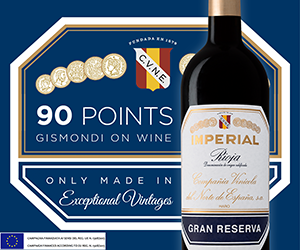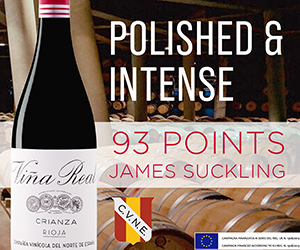After 29 years of bringing the wine world to consumers, the Vancouver Playhouse International Wine Festival reached out to trade attendees in 2007 and launched what is now an annual symposium to address in a more academic setting some of the major issues facing wine globally.
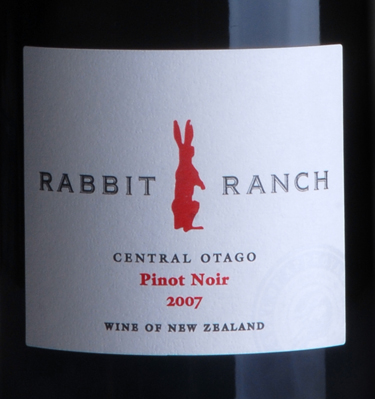
Together with a helping hand from adjunct professor and lawyer Glen Sigurdson, some bright lights at Simon Fraser University and Canada's national wine magazine Wine Access, the symposium has developed into an oversubscribed, super-charged, three-hour dialogue that pushes, prods and generally investigates the subject of wine as it interacts with the modern wine producer and drinker.
In 2007, it was packaging; in 2008, the future of sangiovese; and in 2009, the discussion was all about green marketing.
This year, What's in Your Wine? A Symposium on Truth in Labelling, will be discussed in the round at Simon Fraser University's spectacular Morris J. Wosk Centre for Dialogue.
The 100-strong attendees will be asked: What does it mean to tell the truth, truth about what, truth according to whom? While every ingredient in your breakfast cereal is dutifully listed, do you really know what goes into your wine besides grapes? What about all those terms and places of origin on the label? Is anyone telling the truth?
The age of scrutiny is here and, hot on the heels of the 'cellared in Canada' labelling fiasco and the pinot-gate fraud in southern France, the 2010 symposium looks at a variety of nagging questions whose answers are bound to shape the wording on future wine labels.
There is also the question of how much label information we need. What is most important? For me, the origin of the grapes and who produces it are most important. But what about all those other words you see on labels? Words like "estate, natural, reserve" and "old vines" that have little or no definition that is authenticated.
Who can enforce such terms globally? How much protection do we want? When does the notion of buyer-beware kick in?
Those are all good questions, especially when you consider something as simple as posted alcohol levels can be out by as much as 1.5 per cent or that organically grown fruit doesn't necessarily become organically made wine. If outside agencies can certify bio-dynamic producers on the label, why can't national or regional wine associations certify all their growers and guarantee what's on the label is truthful?
Did you know that across a variety of wine-growing areas, some geographic names are so protected that people growing grapes and producing wines inside the same geographic boundaries are barred from using the very town or village names where the grapes are grown, unless they join a local association of producers and abide by the regulations put in place to bar non-members from making wine in the same region? Maybe if we worried more about the truth and less about guaranteeing quality we could implement meaningful regulations.
As one of the dozen perpetrators of the great pinot scam recently uncovered in the south of France told the sentencing judge: "We would have put Yoplait on the wine if they'd asked us to."
Today we look at more wines made by wineries on their way to this country's largest and best wine bash. Expect another strong showing at the booth from Mission Hill Family Estate. In the meantime, enjoy the best yet Mission Hill Pinot Gris Reserve 2008 and its gooseberry, grapefruit, green apple, butter, citrus tropical fruit flavours. Try with scallops or sole. Winemaker Marc Kent is a personality not to be missed and there are still tickets to what should be a great evening at the latest Moustache Cafe in North Vancouver's LoLo district. Kent will lead an evening of fun along with chef Geoff Lundholm where I'm sure you will taste the Porcupine Ridge Syrah 2008. Eight months in French oak reduces its natural wild character and sets up a pleasant, floral nose with bits of licorice, soft tannins, savoury and black fruit. Call 604-873-3311 for tickets to the April 20 bash.
Liberty School Cabernet Sauvignon 2007 is my go-to wine when I'm looking for quality and value. The man behind Liberty School is talented wine-maker Austin Hope, of Hope Family wines. We love the ripe black fruit flavours, bits of mocha and vanilla, and all in balance. Throw some steaks on the barbecue and enjoy the match.
Rabbit Ranch Pinot Noir 2007 is made by Central Otago superstar Chard Farm. Why there is no Chard Farm pinot in government stores is a mystery to me. Don't miss this one -- it's fun, delicious, uncomplicated pinot fruit you can drink with gusto.
Nice to see the Norton Privada 2006 finally in the market. A supple of malbec, merlot and cabernet sauvignon with vanilla, coffee, blackberry, black cherry, peppery flavours is perfect with most grilled meat dishes.
Finally, Taylor Fladgate Late Bottled Vintage Port 1983, the original LBV, is always a great way to end a meal or a festival. Supple with sweet fruit, it is awash in chocolate, pepper, spirity, black tea, nutty, licorice root and black cherry jam. Lots of stuffing for the money. Good value.
FESTIVAL LABELS
Mission Hill Pinot Gris Reserve 2008, Okanagan Valley Price: $19
UPC: 776545991171
Score: 88/100
Remarks: Round, dry, fresh palate with juicy gooseberry, grapefruit tropical flavours.
Porcupine Ridge Syrah 2008, Coastal Region, South Africa Price: $18
UPC: 746925000786
Score: 88/100
Remarks: Take it to the next barbecue and watch it disappear.
Liberty School Cabernet Sauvignon 2007, California Price: $24
UPC: 657891700207
Score: 88/100
Remarks: The fruit is fresh and bright, with black fruit flavours, bits of mocha and vanilla.
Rabbit Ranch Pinot Noir 2007, Central Otago, New Zealand Price: $25
UPC: 09421019900036
Score: 89/100
Remarks: Solid, uncomplicated Pinot Noir from Central Otago.
Norton Privada 2006, Lujan de Cuyo, Mendoza, Argentina Price: $26
UPC: 07792319678027
Score: 89/100
Remarks: A big, chunky, warm-style red designed for steak.
Taylor Fladgate Late Bottled Vintage Port 2003, Douro Valley, Portugal Price: $26
UPC: 05013626111277
Score: 90/100
Remarks: Supple with intense chocolate and spirity, black tea and black cherry jam.

 quicksearch
quicksearch


